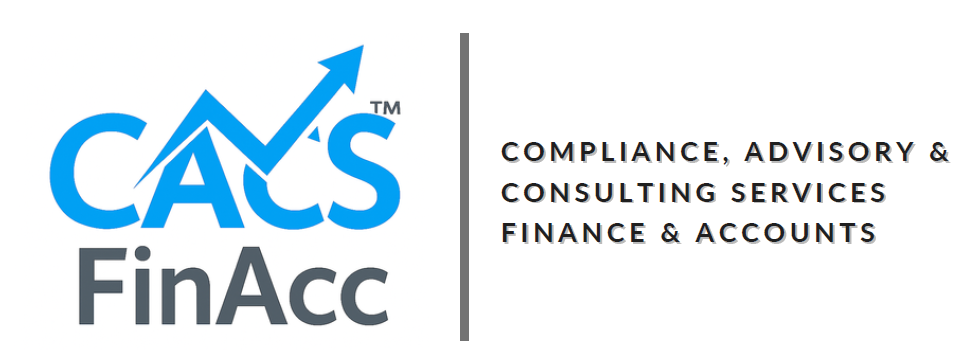DPT-3 Filing & Compliance
DPT-3 Filing – Annual Return of Deposits
Every company (except government companies) must file Form DPT-3 with the Ministry of Corporate Affairs (MCA) by June 30th each year. This return includes details of all deposits, outstanding loans, and amounts received that do not qualify as deposits as of March 31st. The DPT-3 return must be certified by the company’s auditor to ensure accuracy and compliance.
What is DPT-3?
Form DPT-3 is a mandatory annual return filed by companies (other than government companies) to the MCA, reporting:
- Deposits
- Outstanding loans, advances, or monies not considered deposits
DPT-3 is governed by Rule 16 of the Companies (Acceptance of Deposits) Rules, 2014 under the Companies Act, 2013. It must be filed even if the company does not hold public deposits—reporting of loan-type liabilities is compulsory.
Who is Required to File DPT 3?
The following entities must file DPT 3
- Private Limited Companies
- Public Limited Companies
- One Person Companies (OPC)
Exemptions:
- Government Companies
- Banks
- Non Banking Financial Companies (NBFCs) registered with RBI
- housing finance companies
DPT-3 must be filed if the company has any of the following:
- Loans from directors/shareholders
- Unsecured borrowings
- Advances from customers
- Inter-corporate loans
- External commercial borrowings (ECBs)
- Security deposits or retention money
Private Limited, Public Limited, One Person Company (OPC), and Section 8 Companies are all required to file DPT 3 if any such transactions exist.
Types of Returns under DPT-3
| Purpose | DPT-3 Type |
|---|---|
| One time Return (for prior outstanding as on 31 March 2019) | (No longer active) |
| Annual Return of Deposits | For amounts classified as deposits under Companies Act |
| Return of Exempted Borrowings | For non-deposit transactions like loans from directors, inter-corporate borrowings |
| Combined | If both deposits & exempted borrowings exist |
Legal Framework
- Section 73 to 76 of Companies Act, 2013
- Rule 16 of the Companies (Acceptance of Deposits) Rules, 2014
-
Companies must report
- Private Limited, Public Limited, One Person Company (OPC), and Section 8 Companies are all required to file DPT 3 if any such transactions exist.
- Whether amounts qualify as deposits or exempt categories
Documents Required for DPT-3 Filing
- Latest audited Balance Sheet
- Details of all loans/advances/deposits as on 31st March
- Loan Agreements or Declarations
- Certificate from Statutory Auditor (if deposit included)
- CIN (Corporate Identification Number)
- Paid-up Capital, Turnover, and Net Worth
-
Outstanding Loan Details as on 31st March
- Secured Loans
- Unsecured Loans
- ECBs (External Commercial Borrowings)
- Related Party Loans
- Advances from Cus tomers
- Board Resolution Authorizing Filing
- Auditor’s Certificate (if applicable)
- Digital Signature Certificate (DSC) of Director
Recent Amendments & MCA Updates – FY 2024-25
- Enhanced data disclosure: Companies must now disclose bifurcated figures of secured, unsecured loans, and non-deposit borrowings.
- Mandatory Digital Signatures (DSC): DPT-3 filing requires DSC of Director or Authorized Signatory.
- Integration with MCA V3 Portal: Filing is to be done via the new MCA V3 platform, with real-time PAN verification and pre-filled details.
- Verification by Practicing Professional: DPT-3 must be certified by a CA, CS, or CMA in practice.
- Pre-validation of CIN and auto-fill facility on MCA portal.
- Mandatory reporting of ECBs and convertible debentures under 'Particulars of non-deposit transactions'.
- Enhanced disclosure of maturity dates and interest components.
- Penalties under Section 76A & Rule 21 updated with stricter enforcement via MCA compliance tracker.
- ROC compliance grading may now be affected by non-filing of DPT-3.
Due Date for AY 2025-26
For Financial Year 2024-25 (AY 2025-26), the due date for filing
DPT-3 is: 30th June 2025
Note: Late filing will result in penalties under the
Companies Act, 2013.
Penalty for Non Compliance As per Section 76A
| Nature of Default | Penalty as per Companies Act, 2013 |
|---|---|
| Non-filing of DPT-3 | ₹5,000 + ₹500 per day of default |
| False Information Filed | Action under Section 448 – Imprisonment up to 10 years + Fine |
| Not Complying with Section 73 | ₹1 crore or twice the amount of deposit, whichever is lower + interest |
| Officers in default | Up to 7 years imprisonment or fine up to ₹25 lakh |
| Additional ROC penalties | ₹100 per day of delay post due date |
Why is DPT-3 Compliance Important?
- Avoid MCA Penalties
- Maintain Transparency in Borrowings
- Strengthen Corporate Governance
- Enhance Investor Confidence
- Ensure Legal Standing During Audits, Funding, or Mergers
How CACSFinacc Handles DPT-3 for You
-
Pre-Filing Review:
- Review loan agreements, balance sheet entries, and assess deposit vs. non-deposit categorization
-
Documentation Support:
- Draft Board Resolutions, auditor’s certificate (if deposits exist), and internal summaries
-
DPT-3 Form Filing:
- Prepare and file DPT-3 on MCA portal with DSC of Director/Authorized Signatory
-
Post-Filing Acknowledgment:
- Provide SRN, proof of filing, and compliance summary for your records
-
Ongoing Advisory:
- Guidance on deposit rules, Section 73 to 76 restrictions, and RBI/ROC follow-ups
Why Choose CACSFinacc?
- End-to-End Compliance Support
- Accurate Classification of Deposit vs. Non-Deposit
- Preparation of Required Certificates & Resolutions
- Timely DPT-3 Filing with MCA
- Post-Filing Acknowledgment & Advisory

